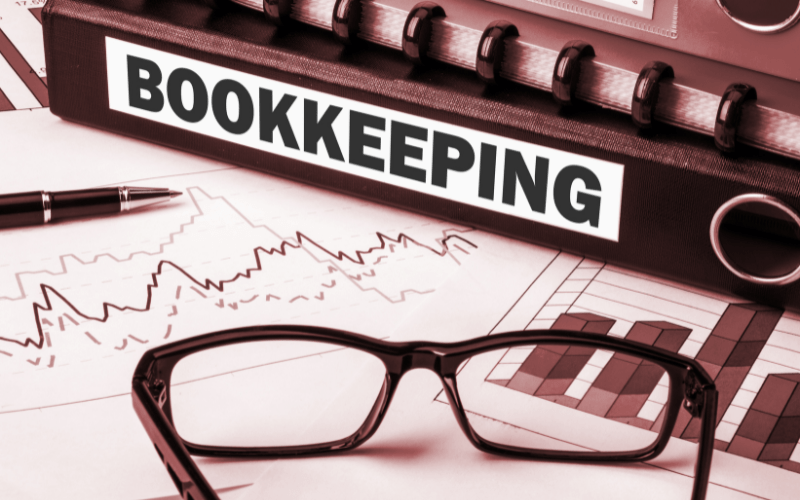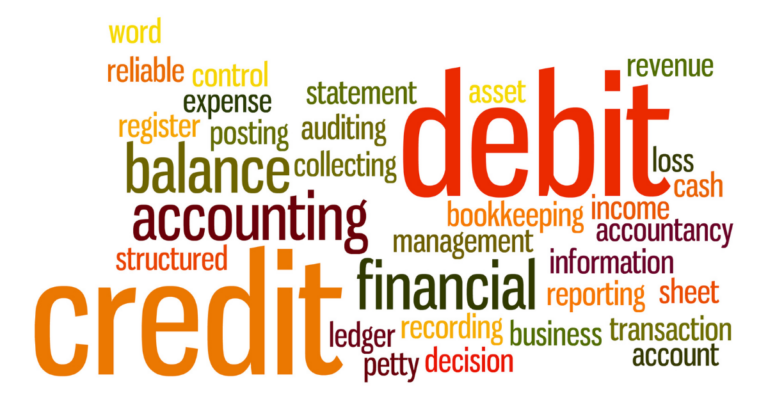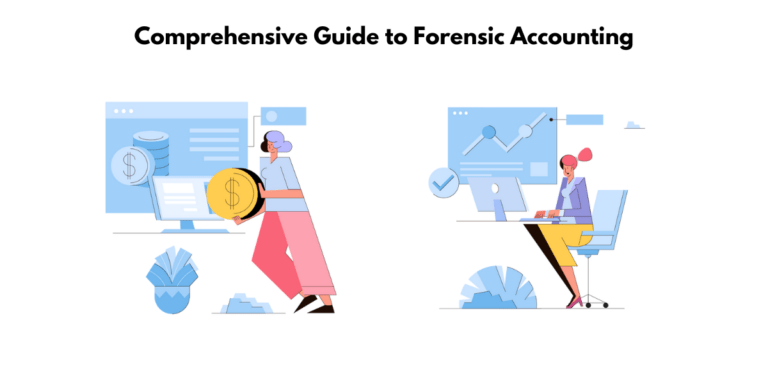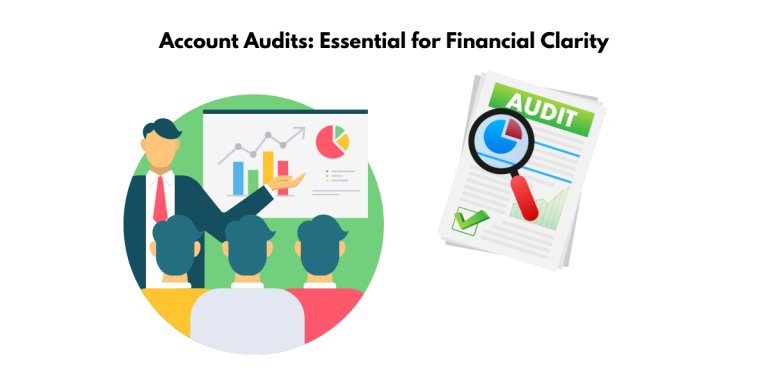Accounting Tips: The Important Things to Look at When Finding a Good Small Business Accountant
Why Small Businesses Need an Accountant
Running your own small business can be challenging, not least because of the complex financial management tasks that come with it. This is where a small business accountant steps in and becomes your financial partner. They turn those puzzling numbers into meaningful insights, benefiting you and your business in various ways:
- Forming your business and helping write a business plan.
- Auditing your cash flow and finding cost-cutting opportunities.
- Advising on both business strategy and personal finances.
- Managing debt, payments, and loan applications.
- Planning budgets and managing inventory.
- Preparing and filing tax returns, along with identifying eligible tax deductions.
- Providing financial analysis and advice, forecasting, and maintenance.
- Overseeing payroll and year-end financial reporting.
Their expertise allows you to focus on what you do best, running your business, while they keep your financials in check. So, when you hire an accountant, you’re setting your business up for financial success.

Important Things to Look for in a Small Business Accountant
1. Experience and skills
Choosing an experienced small business accountant is critical to your company’s success. A skilled accountant can manage your finances, find growth opportunities, and provide critical business advice.
- The accountant’s experience with small businesses is vital. They should understand the intricacies and unique requirements of small businesses compared to larger companies.
- The accountant’s client references should speak positively about their services, and they should be willing to recommend them to other small businesses.
- A proficient accountant could potentially match your business’s specific industry, catering exactly to your unique financial needs.
- Expect a wide range of services from a good small business accountant, from formulating your business and strategy to managing debt, overseeing payroll, and performing year-end financial reporting.
- Lastly, consider their proficiency in utilizing accounting software, managing inventory, recommending business tools, and aiding with other practical matters like opening bank accounts.
2. Training and certification
Having a well-qualified accountant is essential for the financial health of your small business. The training and certifications your accountant holds speak volumes about their expertise and reliability.
Look for these top certifications in your small business accountant:
- Certified Public Accountant (CPA)
- Certified Management Accountant (CMA)
- Certified Financial Planner (CFP)
- Enrolled Agent (EA)
3. Professional license
A professional license is imperative. It’s a testament to the accountant’s education and practical experience, ensuring they’re equipped to handle financial complexities. Certified Public Accountants (CPAs) usually hold these licenses. Having a licensed accountant means your business plans, tax returns, debt management, and audits are handled with due diligence. This can significantly boost your financial management and business strategies. You can verify an accountant’s license on the directories of the American Institute of CPAs or the National Association of State Boards of Accountancy.
4. Experience
Experience is a crucial factor when hiring a small business accountant. It provides a solid understanding of the challenges and unique needs of managing a business. An experienced accountant offers familiarity with your industry-specific accounting needs. They can effectively manage financial complexities unique to small businesses. Experience can ensure proper handling of your particular business structure, crucial during tax season.
Expertise in offering valuable services such as tax preparation, financial forecasting, and analysis, and financial statement preparation. On average, small business accountants save 730 hours per year and provide crucial advice to help your organization grow.

5. Availability
Nothing is more significant to the smooth operation of a small business than having access to a reputable, available accountant. Their availability can make or break business growth. Here’s why:
- Availability in an accountant implies flexibility – as a small business owner, your schedule might be unpredictable, and having a business accountant on call means they can deal with any surprises that arise.
- A readily available accountant can respond swiftly to urgent financial matters, offering timely advice that could save your business a tidy sum.
- An ever-present accountant ensures financial reports and tax returns are timely delivered. For instance, in real-time, an accountant could reveal a cash flow issue that, if addressed early, might save your business from a financial crisis.
6. Professional network
Choosing a small business accountant with a solid professional network has many benefits. Having a well-connected accountant can result in more valuable advice and sounder financial management.
Arguably, an accountant with a robust professional network can provide superior service. They stay updated with the latest industry trends through their network, which potentially benefits your business. Furthermore, they might have partners who can help in various other aspects of your business, creating an ecosystem of professionals nurtured by trust and reputation.
7. Time management
It’s no secret, a small business accountant can be your secret weapon to growth. Their time management skills can make a significant financial impact on your business. Proficient time management has been linked to 730 hours saved annually. Here’s what to for in an accountant’s time management:
- Check their track record: Look for evidence in their work history that demonstrates their time management skills.
- Multi-tasking Efficiency: An accountant must juggle multiple accounts, tasks, and deadlines. Evaluate their ability to effectively multi-task.
- Prioritization Skills: Great accountants know how to prioritize their tasks. Assess their competency in managing deadlines, and handling pressure.
- Automation Proficiency: Seek accountants who are adept at using accounting software to automate tasks. Automation leads to time efficiency.
- Work process: Understanding their work process can provide insights into how they manage their time. Accountants who plan and organize tasks methodically can demonstrate excellent time management skills.
Remember, a time-efficient accountant frees up your precious hours, enabling you to focus on your business growth.
8. Price quote
Securing a price quote is crucial when sourcing a small business accountant. It helps prepare your budget and align your expectations.
Why it’s essential:
- It gives an idea of cost, which helps in budget planning.
- It facilitates comparison across different accountants or firms.
- A price quote can hint at the accountant’s expertise and experience level. Higher costs often equate to higher levels of experience and service.
9. Software selection
- Provide quick and easy access to financial data.
- Enable understanding of revenue, costs, and financial statements.
- Predict profitability and tax liabilities, avoiding manual data entry.
11. Tax services
- Tax return preparation and filing
- Identifying eligible tax deductions
- Account maintenance and management
- Financial analysis and advice
- Cash flow management

12. Bookkeeping services
Small businesses flourish when good bookkeeping practices are in place. It’s the heart of a small business accountant’s role, to ensure all financial information is accurate, up-to-date, and compliant.
Features of Good Bookkeeping Services:
- Accurately recording transactions
- Reconciling accounts
- Managing accounts receivables and payables
- Completing basic payroll
- Preparing important financial statements
How to Find the Right Accountant for Your Small Business
Step 1: Decide what you need from your accountant
When starting a small business, deciding what you need from an accountant can seem overwhelming. Start by determining the essential tasks for your accountant. Depending upon your needs, these could range from bookkeeping to broader business tasks. Prioritize them based on urgency. Consider the frequency of accounting services needed.
Step 2: Compare your needs to an accounting firm’s offerings
Choosing the right accounting firm for your small business is crucial, and with diverse options available, you should never compromise. Here’s a tip on how to align your business needs with an accounting firm’s services. Examine the range of services — the firm should offer a variety of services that can be layered on as your business grows and needs change.
Step 3: Meet with potential accountants in person
- Research and analyze the backgrounds of potential accountants. Check if they have a valid certification, consider using background check services, and ensure they don’t have negative marks on their records.
- Set a meeting: If their background checks out, set up a face-to-face meeting to discuss your business goals. Scrutinize their experience in your industry and assess the time they’d be able to dedicate to your business.
- Assess proactivity: During the meeting, the accountant should be keen to ask and take an interest in your business. It’s essential for them to be proactive—it’s an indication of the potential value they’ll bring to your business.
Step 4: Set up a small business payroll system
Starting a small business comes with numerous responsibilities, including setting up a reliable payroll system. Master this task with our straightforward guide, and you’ll be on your way to smooth-sailing payroll operations in no time.
- First, determine whether your workers are employees or independent contractors. Keep in mind, for employees, you’re obliged to withhold taxes.
- Implement a payroll schedule that suits your business needs – whether weekly, biweekly, or monthly.
- With the assistance of accounting software with payroll features, accurately calculate and withhold tax amounts.
- Always track payments if dealing with independent contractors as small businesses in the US might need to file a 1099 form for each at the end of the year.
- Expert tip: Leverage automated accounting software to streamline your process and minimize errors. This not only saves time but also ensures accuracy in your payroll system.
Step 5: Investigate import tax regulations
- Begin by investigating the likely import taxes dutifully. Depending on your business model, taxes and duties might apply when importing products to sell in your store.
- Using a duty calculator can help estimate these costs, aiding in financial planning and budgeting.
- The International Trade Administration provides detailed information about import taxes applicable in the US. Alternatively, Canadian businesses could refer to the Canadian Border Services Agency.
- Understanding the import tax regime contributes significantly to the process of finding a high-quality accountant. An accountant well-versed in import duties can assist in accurate financial reporting and tax filing.
- Be aware that these aspects could seem complicated occasionally, so periodic reviews and consultations with your accountant can ensure compliance and optimal tax savings.

Step 6: Determine how you’ll get paid
Summary:
As a small business owner, selecting the right payment approach for an accountant is crucial for your budget planning. Here, we’ll guide you through the process to help make your decision easy.
Steps:
- Firstly, understand the fee structure: Some accountants or firms charge a straight fee for their services, while others bill by the hour.
- Next, request an estimate in writing to finalize what you’ll be paying for their services. The fees can vary widely depending on your geographical location or the specific services needed.
- It’s also essential to remember that their costs could be invoiced or they could require a payroll system.
- Lastly, consider having a discussion about their fees. It’s completely appropriate, and it could help prevent unexpected costs down the line.
Remember: hiring an accountant can help you save time, stress, and potentially money in the long run. Be clear, assertive and make decisions that suit your business best.
Step 7: Search in the right places to find a suitable accountant
Finding the right small business accountant can significantly boost your financial decision-making, keeping your business flourishing and in line with regulatory norms. This personalized guide provides a step-by-step approach and expert tips to help you find the best accountant for your business needs.
- Start your search by asking other small business owners. This crowdsourcing can yield reliable results.
- Browse through the American Institute of CPAs’ directory or the National Association of State Boards of Accountancy. These platforms provide a reputable list of accountants based on your region.
- Direct referrals from business advisors, lawyers, bankers, or your industry network are always good options.
- Attend small business events hosted by your local Chamber of Commerce or Small Business Development Center. Networking can often lead you to a skilled accountant.
- Also, consider organizations like the AICPA and Accounting & Financial Women’s Alliance (AFWA) when seeking professional accountants.
- Be proactive. Don’t just hire the first accountant you come across. Evaluate their background, experience and check for regulatory complaints or issues on their record.
- Arrange a meeting to ensure compatibility. Gauge their experience in your business sector and availability.
- An accountant worth hiring should display an active interest in your business, ask pertinent questions, and offer valuable financial advice. This would signal their commitment to helping your business.
Step 8: Develop a bookkeeping system
- Start by opening a small business bank account to separate personal from business finances.
- Use accounting software like QuickBooks or a spreadsheet to track business expenses and income effectively. Research shows software tends to reduce manual errors.
- Choose between cash or accrual accounting methods per your country’s regulations.
- Establish sales tax procedures and identify tax obligations based on your local laws.
- If necessary, consider applying for small business funding.
- Finally, periodically reassess your bookkeeping methods. Remember, the goal is to automate routine tasks, save time, and potentially reduce costs. Being proactive will make your accountant’s job easier while giving you a clearer picture of your business’s financial health.
Step 9: Calculate gross margin
If you’re running a small business, understanding your gross margin is essential. It’s a powerful tool that measures efficiency and profitability. Here’s a concise guide to calculating it:
- First, familiarize yourself with the terms Cost of Goods Sold (COGS) and gross margin. COGS are the direct costs of producing your product, while your gross margin is what’s left from revenue after COGS.
- To calculate your gross margin, use the following formula: Gross margin (%) = (revenue – COGS) / revenue. For a quick calculation, use a free profit margin calculator.
- This could involve details like labor costs, material costs, and any direct expenses associated with the production of goods.
- On meticulously following these steps, you should have your gross margin. It’s essential to keep track of this, as it determines your business’s profitability.
- Expert tip: Regularly re-evaluating your methods can help maintain or improve the gross margin.

Step 10: Apply for small-business funding
Securing the right funding is a critical stepping stone in the journey of any growing business. Let us take you through a streamlined process to apply for small business funding while hiring a competent small business accountant.
- Start by assessing your financial needs. This should encompass operational costs, inventory purchases, and new hires.
- Before diving into the application process, ensure your financial statements, including balance sheets, income statements, and possibly cash flow statements, are in order.
- Carefully use Shopify Capital or similar platforms to secure your funding, based on your previous sales figures.
- Calculate the ROI of the loan covering your full expenses and expected returns, factoring in the total interest cost.
- Concurrently, find a small business accountant, who can efficiently manage your finances and answer lender questions.
- Finally, submit your application to the preferred lender.
Organization is key – both in your financial documents and the application process. Having an expert accountant onboard greatly assists this.
Conclusion
Conclusively, finding the right small business accountant requires thorough research and attention to detail.
- Check for an accountant’s experience with small businesses. It’s vital they understand the complexities that come with running your small business and can demonstrate this with past clients.
- Ask for and follow up on references. Previous clients can provide valuable insights into an accountant’s value and reliability.
- Broaden your search beyond online. Consider crowdsourcing from other small business owners you trust or use professional directories like the American Institute of CPAs’.
- Schedule an exploratory meeting. Reputable accountants should be willing to discuss your needs and provide further references during this meeting.
- Always cross-verify information to avoid fraudulent accountants or practices. Conduct thorough interviews, complete background checks, and remain actively involved in your accounting processes.
- Watch for red flags. Beware of accountants who discourage proper record keeping, ask you to sign off on unknown documents or charges, or breakdown in communication.
Remember, your accountant will play a key role in your small business’s financial health, so invest the time to secure a professional who you can trust.
- Mastering GAAP: Best Practices in Accounting for Business - February 26, 2025
- Accounting Tips: The Important Things to Look at When Finding a Good Small Business Accountant - September 27, 2021
- Bookkeeper Services: An Overview Of What You Need To Know - July 17, 2021







One Comment
Comments are closed.